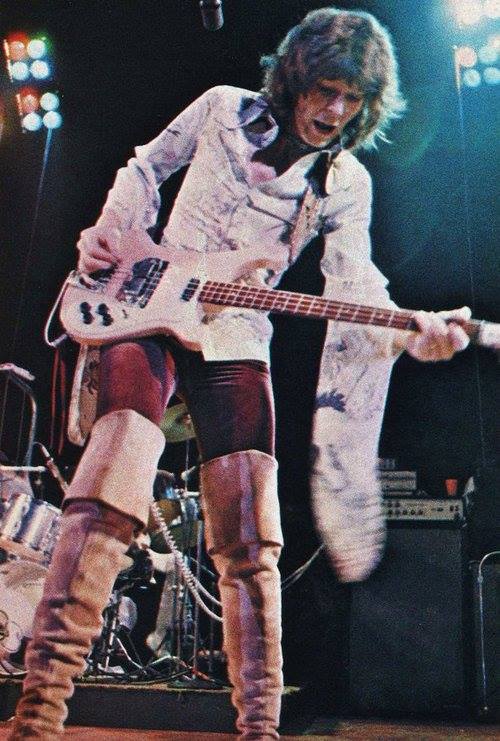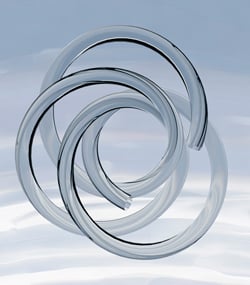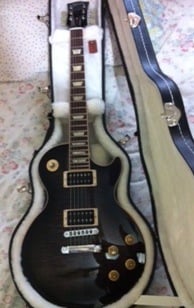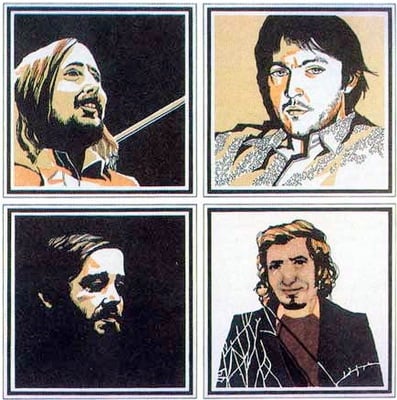/PAlogo_v2.gif)
/PAlogo_v2.gif) |
|
Post Reply 
|
Page <1234> |
| Author | ||||||||||||||||||||||||||||||||||||||||||||||||||||||||||||||||||||||||||
cstack3 
Forum Senior Member 

VIP Member Joined: July 20 2009 Location: Tucson, AZ USA Status: Offline Points: 6830 |
 Posted: February 10 2015 at 23:42 Posted: February 10 2015 at 23:42 |
|||||||||||||||||||||||||||||||||||||||||||||||||||||||||||||||||||||||||
We cannot examine the music of an era in a vacuum. As the times changed, so did the drugs of choice of those who tended to listen to rock music. Marijuana, which helped fuel the prog boom of the 1970s (Jon Anderson has written about this) was looked upon as an "old hippie drug," and newer drugs including stimulants and other synthetics became more fashionable. These did not lend themselves to sitting around in a dark room, listening to side after side of progressive music. |
||||||||||||||||||||||||||||||||||||||||||||||||||||||||||||||||||||||||||
 |
||||||||||||||||||||||||||||||||||||||||||||||||||||||||||||||||||||||||||
Svetonio 
Forum Senior Member 

Joined: September 20 2010 Location: Serbia Status: Offline Points: 10213 |
 Posted: February 10 2015 at 23:40 Posted: February 10 2015 at 23:40 |
|||||||||||||||||||||||||||||||||||||||||||||||||||||||||||||||||||||||||
|
I recall that in 80s I was very disgusted by that vulgar commercialized 80s prog. And for that vulgarization of 80s prog, I don't blame the music industry only. Some prog artists have gladly stopped being artists, and turned into a money printing press.
At that time, I was listening to just released ECM LPs, adding some 80s prog albums that were worth listening to, such as 80s Zappa's albums, Peter Gabriel 4, King Crimson's Discipline, Beat and Three of A Perfect Pair (that KC's trilogy was saved the honor of British prog in 80s imo), then some great LPs that were released in 80s by Yugoslav prog rock bands such Vrt svetlosti ("A Garden of Light") by Igra staklenih perli ("The Glass Bead Game"), Zašto ne volim sneg ("Why do not I like snow") and '86 by Smak ("The End Of The Wolrld"), Beskonačno ("Infinity") by Leb i Sol ("Bread and Salt"), U vreći za spavanje ("In A Sleeping Bag") by Tako ("So") .... for example this is a magnificent instrumental Smak's track from '86; a timeless track that had nothing to do with 80s sound. Edited by Svetonio - February 11 2015 at 07:15 |
||||||||||||||||||||||||||||||||||||||||||||||||||||||||||||||||||||||||||
 |
||||||||||||||||||||||||||||||||||||||||||||||||||||||||||||||||||||||||||
KingCrInuYasha 
Forum Senior Member 
Joined: September 26 2010 Location: USA Status: Offline Points: 1281 |
 Posted: February 10 2015 at 23:31 Posted: February 10 2015 at 23:31 |
|||||||||||||||||||||||||||||||||||||||||||||||||||||||||||||||||||||||||
Well, at least with the Broadsword era, Tull was able to successfully integrate their sound with the new technology at the time, especially if you look at the outtakes like "Jack-A-Lynn" and "Down At The End Of Your Road". Under Wraps I can definitely agree on. It sounds like Anderson was desperate to try to be current with the times and it shows. Most of the sounds on there were done earlier and better by the Police and The Buggles (both as their own group and with Drama era Yes). Even worse, at least two-thirds of the album was completely forgettable to my ears. As of this writing, I rented the album twice from my library and I can only remember parts of the title track, "Lap Of Luxury", "European Legacy" and "Moscow Radio".
|
||||||||||||||||||||||||||||||||||||||||||||||||||||||||||||||||||||||||||
|
He looks at this world and wants it all... so he strikes, like Thunderball!
|
||||||||||||||||||||||||||||||||||||||||||||||||||||||||||||||||||||||||||
 |
||||||||||||||||||||||||||||||||||||||||||||||||||||||||||||||||||||||||||
Metalmarsh89 
Forum Senior Member 

Joined: January 15 2013 Location: Oregon, USA Status: Offline Points: 2673 |
 Posted: February 10 2015 at 23:16 Posted: February 10 2015 at 23:16 |
|||||||||||||||||||||||||||||||||||||||||||||||||||||||||||||||||||||||||
|
I'm a believer that synths did wonders for Mike Oldfield's music. Tubular Bells --> Ommadawn are stellar. Incantations is good as well. But Five Miles Out, Crises, and even QE2 are right up there close to his best work. And then there's Amarok. That guy continued to kill it (when the record company allowed for it) all the way through the 80's, right up to Tubular Bells II in the 90's.
|
||||||||||||||||||||||||||||||||||||||||||||||||||||||||||||||||||||||||||
|
Want to play mafia? Visit here.
|
||||||||||||||||||||||||||||||||||||||||||||||||||||||||||||||||||||||||||
 |
||||||||||||||||||||||||||||||||||||||||||||||||||||||||||||||||||||||||||
HackettFan 
Forum Senior Member 

Joined: June 20 2012 Location: Oklahoma Status: Offline Points: 7946 |
 Posted: February 10 2015 at 23:09 Posted: February 10 2015 at 23:09 |
|||||||||||||||||||||||||||||||||||||||||||||||||||||||||||||||||||||||||
I can't agree more, but unlike some of the others, they were still a very worthwhile band to see live, even then. |
||||||||||||||||||||||||||||||||||||||||||||||||||||||||||||||||||||||||||
 |
||||||||||||||||||||||||||||||||||||||||||||||||||||||||||||||||||||||||||
HackettFan 
Forum Senior Member 

Joined: June 20 2012 Location: Oklahoma Status: Offline Points: 7946 |
 Posted: February 10 2015 at 23:06 Posted: February 10 2015 at 23:06 |
|||||||||||||||||||||||||||||||||||||||||||||||||||||||||||||||||||||||||
|
Oh, and I believe there was a second question in the OP. Could you forgive any of the sell-outs? The answer from me is yeah, sure, if they return to playing Prog. Yes, I could even forgive Tony and Phil.
Edited by HackettFan - February 11 2015 at 00:17 |
||||||||||||||||||||||||||||||||||||||||||||||||||||||||||||||||||||||||||
 |
||||||||||||||||||||||||||||||||||||||||||||||||||||||||||||||||||||||||||
HackettFan 
Forum Senior Member 

Joined: June 20 2012 Location: Oklahoma Status: Offline Points: 7946 |
 Posted: February 10 2015 at 23:01 Posted: February 10 2015 at 23:01 |
|||||||||||||||||||||||||||||||||||||||||||||||||||||||||||||||||||||||||
See, this is what I always thought. The record companies actively ignoring music that a significant faction of listeners wanted to hear in the eighties. As you can see, Dean has already objected to laying it at the feet of the record companies, and we had a back and forth over that quite awhile ago. What I saw as a teenager in the early eighties was an enormous interest in Prog in my white suburban stomping grounds. Mainly it was the geeks or the refer smokers that made the Prog fan ranks, but there were a lot of them. Someone spray painted Rael on a school storage building for cripe's sake. Perhaps the place I was in was an oddity, but I found it incredulous that there was supposedly no market for it. Since then, I've thought about it and come to realize that all the Prog we supported was from out of town. There were no local Prog bands, or at least not enough to have made an impression on anyone. Even Rush, which almost seemed like a local band actually came from Toronto. The point I'm working toward is there has to be an active underground that cultivates new talent (e.g. the Canterbury scene). That's what Prog was missing in the eighties and probably earlier. It's not to say individual talent can't emerge in the oddest places, but the Record Companies perhaps might have responded differently if they had found both a fan base and a cohesive base of talent to go with it. This is all very speculative, I know, but if I were interested in promoting a band I would want to follow the sports model, cultivate lots of upcoming talent, and value any rivalries. Edited by HackettFan - February 11 2015 at 00:14 |
||||||||||||||||||||||||||||||||||||||||||||||||||||||||||||||||||||||||||
 |
||||||||||||||||||||||||||||||||||||||||||||||||||||||||||||||||||||||||||
Atavachron 
Special Collaborator 

Honorary Collaborator Joined: September 30 2006 Location: Pearland Status: Offline Points: 64700 |
 Posted: February 10 2015 at 21:12 Posted: February 10 2015 at 21:12 |
|||||||||||||||||||||||||||||||||||||||||||||||||||||||||||||||||||||||||
Hear, hear. |
||||||||||||||||||||||||||||||||||||||||||||||||||||||||||||||||||||||||||
|
"Too often we enjoy the comfort of opinion without the discomfort of thought." -- John F. Kennedy
|
||||||||||||||||||||||||||||||||||||||||||||||||||||||||||||||||||||||||||
 |
||||||||||||||||||||||||||||||||||||||||||||||||||||||||||||||||||||||||||
SteveG 
Forum Senior Member 

Joined: April 11 2014 Location: Kyiv In Spirit Status: Offline Points: 20538 |
 Posted: February 10 2015 at 09:52 Posted: February 10 2015 at 09:52 |
|||||||||||||||||||||||||||||||||||||||||||||||||||||||||||||||||||||||||
|
||||||||||||||||||||||||||||||||||||||||||||||||||||||||||||||||||||||||||
 |
||||||||||||||||||||||||||||||||||||||||||||||||||||||||||||||||||||||||||
Cristi 
Special Collaborator 

Crossover / Prog Metal Teams Joined: July 27 2006 Location: wonderland Status: Offline Points: 41779 |
 Posted: February 10 2015 at 09:43 Posted: February 10 2015 at 09:43 |
|||||||||||||||||||||||||||||||||||||||||||||||||||||||||||||||||||||||||
That's a good point, they had to adapt and some did, some didn't. There are bands whose 80s work I enjoy. Yes, Pink Floyd, Rush, even Kansas did a good job in the 80s IMO. Even Moody Blues did some good music in the 80s, even though it was quite poppy. As far as Genesis goes, all three of them wanted to go pop, it's not Phil's fault as some think. In fact, Mike was the first one who wanted to make Genesis more accessible. Although I find 80 Genesis albums rather uneven (some hidden gems here and there), they were still making better music than your regular mainstream pop. |
||||||||||||||||||||||||||||||||||||||||||||||||||||||||||||||||||||||||||
 |
||||||||||||||||||||||||||||||||||||||||||||||||||||||||||||||||||||||||||
moshkito 
Forum Senior Member 
Joined: January 04 2007 Location: Grok City Status: Offline Points: 16594 |
 Posted: February 10 2015 at 09:31 Posted: February 10 2015 at 09:31 |
|||||||||||||||||||||||||||||||||||||||||||||||||||||||||||||||||||||||||
I'm already thinking that the reason is obvious ... it ain't "prog". It's just another song!
|
||||||||||||||||||||||||||||||||||||||||||||||||||||||||||||||||||||||||||
|
Music is not just for listening ... it is for LIVING ... you got to feel it to know what's it about! Not being told!
www.pedrosena.com |
||||||||||||||||||||||||||||||||||||||||||||||||||||||||||||||||||||||||||
 |
||||||||||||||||||||||||||||||||||||||||||||||||||||||||||||||||||||||||||
Gerinski 
Prog Reviewer 

Joined: February 10 2010 Location: Barcelona Spain Status: Offline Points: 5153 |
 Posted: February 10 2015 at 09:28 Posted: February 10 2015 at 09:28 |
|||||||||||||||||||||||||||||||||||||||||||||||||||||||||||||||||||||||||
|
I'm not too knowledgeable about the precise role played by the music industry in what happened to Prog bands in that period, surely they had a big say, but I guess that the bands themselves were a bit confused too regarding which way to go in order to keep making some money and being able to attract audiences on tour, and many adapted to those new times more or less voluntarily.
At any rate, for whatever reason, memories and nostalgia being probably the main ones, I still enjoy many of those 1980's albums, even with their flaws, and often better than many current Prog albums (but I will not restart the Old Prog vs New Prog debate
 ). ). |
||||||||||||||||||||||||||||||||||||||||||||||||||||||||||||||||||||||||||
 |
||||||||||||||||||||||||||||||||||||||||||||||||||||||||||||||||||||||||||
moshkito 
Forum Senior Member 
Joined: January 04 2007 Location: Grok City Status: Offline Points: 16594 |
 Posted: February 10 2015 at 09:08 Posted: February 10 2015 at 09:08 |
|||||||||||||||||||||||||||||||||||||||||||||||||||||||||||||||||||||||||
|
Hi, I have not studied this as much as I would like to but I am not sure that the "record companies" were exactly the problem, as was the distribution system that brought things to your local store. The material was out there, but all of a sudden most of the "imports" took a dive, and things did not exactly disappear as other record companies came up in the mid 70's that helped, like Jem, Wayside and many others. The best person to discuss this would be Archie Patterson (if he would, not sure of this), as he was a distributor for over 30 years of Imports and a part of this stuff in California and oregon. The thing that hurt the most was the combination of the big three for DISTRIBUTION purposes, which was called "WEA" (Warner, Elektra and Atlantic) and we could see the results in Santa Barbara, as a lot of the individual albums by many artists all of a sudden disappeared and replaced with extra copies of Rolling Stones, Elton John and other bigger name groups, to the point where some folks in a local store even said ... no one buys it ... and of course they never had any to prove it! But one other store in there started doing imports and did rather well, for quite sometime as far as I know, although I left Santa Barbara within a year or so of it starting. Here in Portland/Vancouver area, my only outlet for any "imports" was Tower Records that finally went under when they converted to top ten ... which I had specified to the manager was stupid because they were known as a specialty store ... and all the Kmarts and Fred Meyers and everyone else had copies of the same thing they would also have! Sheer stupidity! All in all, I think the distribution channels were the bigger issue. But, by that time (mid 70's on) we were already well established with Tower on the Strip, Warehouse in Westwood and Moby Disk, and we did not need the local crap house! Despite all this, however, Space Pirate Radio did just fine when it came to new material and it never really ran out of stuff to play, because the station did not know the difference between a hit and just another hit and new music! And by the 80's I was already completely weened out of Genesis and Yes, because the Europeans were far superior in qualilty and quantity! You just had to get off the "radio syndromme", or the "top ten" idiocy and mind corruption to learn and find the other stuff. Plain and simple. And this was the main reason why by 1990 when I got my first computer, I was saying that all these bands needed to get their own website and tell these "record companies" to take a hike! And many bands did, albeit a bit too slow. Gong was about 5 years late. Marillion was about the same. Porcupine Tree was independent from the start I think. And it all coincided with the rise of the new "prog" and "metal prog" that we hear so much today ... in other words, there was new music out there we had not heard yet. Edited by moshkito - February 10 2015 at 09:18 |
||||||||||||||||||||||||||||||||||||||||||||||||||||||||||||||||||||||||||
|
Music is not just for listening ... it is for LIVING ... you got to feel it to know what's it about! Not being told!
www.pedrosena.com |
||||||||||||||||||||||||||||||||||||||||||||||||||||||||||||||||||||||||||
 |
||||||||||||||||||||||||||||||||||||||||||||||||||||||||||||||||||||||||||
SteveG 
Forum Senior Member 

Joined: April 11 2014 Location: Kyiv In Spirit Status: Offline Points: 20538 |
 Posted: February 10 2015 at 08:59 Posted: February 10 2015 at 08:59 |
|||||||||||||||||||||||||||||||||||||||||||||||||||||||||||||||||||||||||
My own take on Marillion's chart success can only be seen as an anomaly or the result of bad business decisions on the part of EMI et al, which only adds fuel to the fire by pointing out that the overwhelming majority of major labels in the eighties avoided Prog like the plague.
Edited by SteveG - February 10 2015 at 09:16 |
||||||||||||||||||||||||||||||||||||||||||||||||||||||||||||||||||||||||||
 |
||||||||||||||||||||||||||||||||||||||||||||||||||||||||||||||||||||||||||
The Dark Elf 
Forum Senior Member 

VIP Member Joined: February 01 2011 Location: Michigan Status: Offline Points: 12799 |
 Posted: February 10 2015 at 08:56 Posted: February 10 2015 at 08:56 |
|||||||||||||||||||||||||||||||||||||||||||||||||||||||||||||||||||||||||
I am not sure how much "real truth" comes with my opinion, but there are and were numerous Tull fans (there are two main Tull sites/forums I still stop by) who were utterly dismayed with Under Wraps and other albums of its ilk. I quite understand an artist's need to branch out and explore new ideas, but to me it seemed like Ian Anderson, egoist as he is, was more interested in band control and keeping up with the Jones's (in this case, maybe Howard Jones The same can be said of Yes and Genesis. Make your pop brainfarts, by all means, but don't expect me to gush about your newfound crass commercialism. But one's interest in bands are cyclical, in my opinion, rather like personal relationships. They don't always last, some last longer than others, and some may be enduring. But the enduring ones are the rarest, if they happen at all. Except, of course, for my wife of 15 years (who is glaring at me currently). Edited by The Dark Elf - February 10 2015 at 08:59 |
||||||||||||||||||||||||||||||||||||||||||||||||||||||||||||||||||||||||||
|
...a vigorous circular motion hitherto unknown to the people of this area, but destined
to take the place of the mud shark in your mythology... |
||||||||||||||||||||||||||||||||||||||||||||||||||||||||||||||||||||||||||
 |
||||||||||||||||||||||||||||||||||||||||||||||||||||||||||||||||||||||||||
altaeria 
Forum Senior Member 
Joined: March 05 2004 Location: Philadelphia Status: Offline Points: 178 |
 Posted: February 10 2015 at 08:51 Posted: February 10 2015 at 08:51 |
|||||||||||||||||||||||||||||||||||||||||||||||||||||||||||||||||||||||||
|
I never understand why prog guys get all upset if a song has a discernible verse and chorus anyway. God forbid there might be a strong temptation to sing along with a catchy melody sometimes. Following this logic-- With all their instantly anthemic hooks, The Beatles must've been the cheesiest band to ever exist. |
||||||||||||||||||||||||||||||||||||||||||||||||||||||||||||||||||||||||||
 |
||||||||||||||||||||||||||||||||||||||||||||||||||||||||||||||||||||||||||
Dean 
Special Collaborator 

Retired Admin and Amateur Layabout Joined: May 13 2007 Location: Europe Status: Offline Points: 37575 |
 Posted: February 10 2015 at 08:49 Posted: February 10 2015 at 08:49 |
|||||||||||||||||||||||||||||||||||||||||||||||||||||||||||||||||||||||||
|
Hmm. The 1980s saw the burgeoning of the Independent Labels as a major force within music and many non-Prog bands saw considerable success in that era on those Indie labels (Beggars Banquet, 4AD, Factory, Mute, ZZT, Rough Trade, etc.,). With notable exceptions not many bands in the 1970s achieved much fame on major labels, and in this I do not count Transatlantic, Island, Virgin or Charisma as major labels, though they were not wholly independant either, however, I would I count subsidiaries and imprints such as Deram, Dawn, Vertigo and Harvest as a being part of a major. The late 70s and early 80s saw the transition of these artists from major and minor established labels towards more specialist independent labels. None more graphically illustrate this than The Enid who went from the independent Buk Records, to signing with to EMI, then Pye and then back to indie (Mantella) and finally self-release. Fame and fortune eluded them at every step along the way, in spite of the mass of loyal fans they picked up during their live tours in the late 70s. So, I do not think that the "blame" can be levelled at the disinterest of the major labels. Nor was it due to the failure of the Indie labels to gain any recognition for their albums. If anything in the 1980s being signed to an indie rather than a major would have been a boon not a hindrance. So what was it? Public disinterest? Had the Prog scene become too commercial for the die-hard Prog fan and not commercial enough for Joe Average? Were Marillion more commercial than their Neo-Prog compatriots? The undoubtable poppiness of Kayleigh and Lavender aside, their unbroken list of non-Pop UK top-40 singles would suggest otherwise:
With Renaissance, it is worth remembering that they achieved "Pop" success in 1978 with Northern Lights, something that I believe that all concerned (band, major label and IRS) were keen to repeat. How they failed in that endeavour is open for debate, but it is not the fault of the buying public, who lapped up All About Eve's half-dozen Renaissance-influenced goth-lite top-40 hit singles in the 80s without complaint. I believe two factors contribute to our view of this era in Prog's history - the Rock Press (whose influence cannot be ignored or excused) and thus the public that is undoubtably swayed by what they read in the press, and by those non-Prog bands whose success toppled Prog from its natural home in the hearts of the record-buying youth. Both these factors shaped the music that was being created and I would argue that this has a greater effect than any pressure by a record label or producer to be "more commercial". Edited by Dean - February 10 2015 at 08:53 |
||||||||||||||||||||||||||||||||||||||||||||||||||||||||||||||||||||||||||
|
What?
|
||||||||||||||||||||||||||||||||||||||||||||||||||||||||||||||||||||||||||
 |
||||||||||||||||||||||||||||||||||||||||||||||||||||||||||||||||||||||||||
SteveG 
Forum Senior Member 

Joined: April 11 2014 Location: Kyiv In Spirit Status: Offline Points: 20538 |
 Posted: February 10 2015 at 08:38 Posted: February 10 2015 at 08:38 |
|||||||||||||||||||||||||||||||||||||||||||||||||||||||||||||||||||||||||
|
||||||||||||||||||||||||||||||||||||||||||||||||||||||||||||||||||||||||||
|
This message was brought to you by a proud supporter of the Deep State.
|
||||||||||||||||||||||||||||||||||||||||||||||||||||||||||||||||||||||||||
 |
||||||||||||||||||||||||||||||||||||||||||||||||||||||||||||||||||||||||||
SteveG 
Forum Senior Member 

Joined: April 11 2014 Location: Kyiv In Spirit Status: Offline Points: 20538 |
 Posted: February 10 2015 at 08:35 Posted: February 10 2015 at 08:35 |
|||||||||||||||||||||||||||||||||||||||||||||||||||||||||||||||||||||||||
Edited by SteveG - February 10 2015 at 09:11 |
||||||||||||||||||||||||||||||||||||||||||||||||||||||||||||||||||||||||||
 |
||||||||||||||||||||||||||||||||||||||||||||||||||||||||||||||||||||||||||
TODDLER 
Forum Senior Member 
VIP Member Joined: August 28 2009 Location: Vineland, N.J. Status: Offline Points: 3126 |
 Posted: February 10 2015 at 08:27 Posted: February 10 2015 at 08:27 |
|||||||||||||||||||||||||||||||||||||||||||||||||||||||||||||||||||||||||
This is really funny! I wish I could meet more people in life who feel this way. I agree a hundred percent , but often have to deal with people's rolling eyes whenever I express this kind of honesty as you have. I really like your post! It expresses real truth.
|
||||||||||||||||||||||||||||||||||||||||||||||||||||||||||||||||||||||||||
 |
||||||||||||||||||||||||||||||||||||||||||||||||||||||||||||||||||||||||||
Post Reply 
|
Page <1234> |
| Forum Jump | Forum Permissions  You cannot post new topics in this forum You cannot reply to topics in this forum You cannot delete your posts in this forum You cannot edit your posts in this forum You cannot create polls in this forum You cannot vote in polls in this forum |